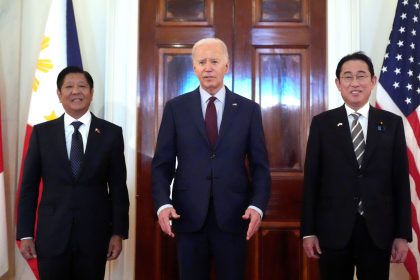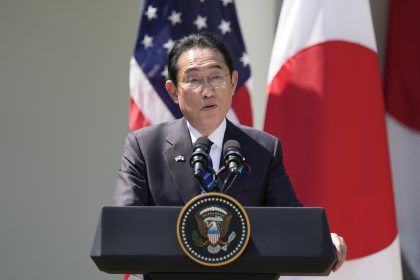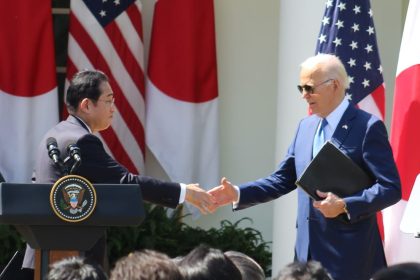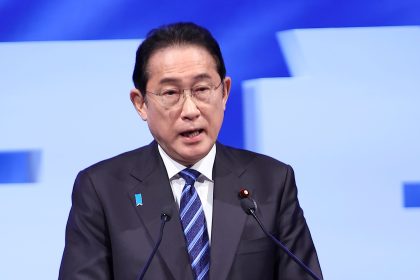US, China Agree to Ramp Up Renewables to Address Climate Concerns
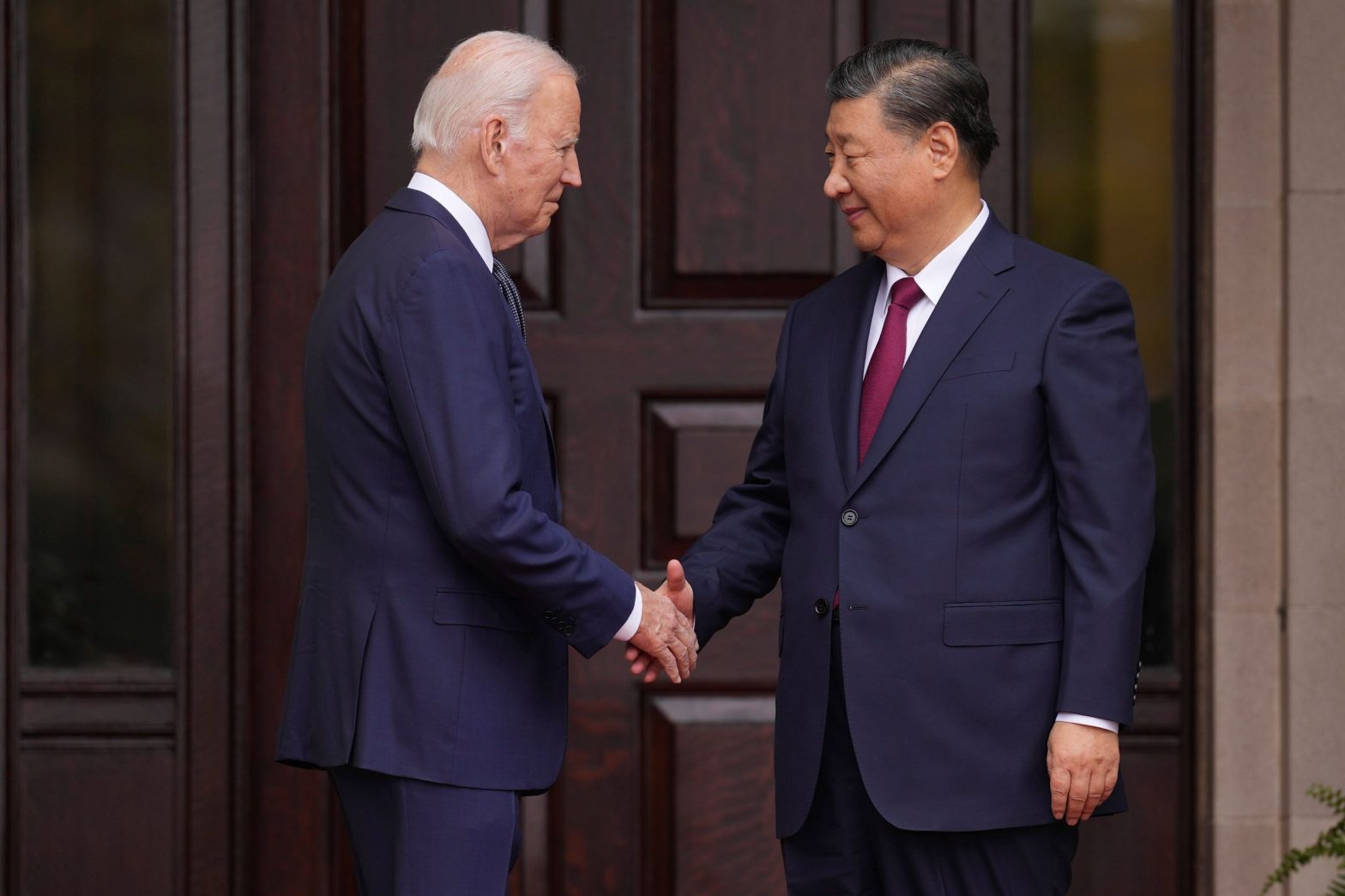
SAN FRANCISCO — President Biden and Chinese President Xi Jinping have agreed to ramp up renewable energy development over the next seven years in order to speed its replacement of “coal, oil and gas generation.”
The announcement of the deal Tuesday night came a day ahead of a meeting between the two leaders, their first face-to-face conversation in nearly a year as tensions flared between the U.S. and China.
The announcement is also noteworthy because it appears to go a step further than the Group of 20’s expectations. The group of leading economic nations said they hoped to see global renewable energy capacity triple by 2030.
Nowhere in that statement from earlier this year was there any mention of having energy from renewable resources replace oil and gas.
The statement released Tuesday evening here in Washington said both nations “are aware of the important role they play” and “will work together … to rise up to one of the greatest challenges of our time.”
Specifically, the two nations agreed to restart the U.S.-China Energy Efficiency Forum, a public-private partnership intended to enable both countries to unlock commercial opportunities in energy efficiency while meeting their energy and environmental goals.
Biden and Xi also said they intend to recommence bilateral dialogues on energy policies and strategies, carry out exchanges on mutually agreed topics and “facilitate activities to enhance pragmatic cooperation.”
The two leaders also agreed to cooperatively advance “at least” five large-scale projects that aim to capture and store carbon that would otherwise be emitted by power plants or other large pollution sources by 2030.
Carbon capture is a controversial topic in the United States, due to the belief held by opponents that it actually extends the life of the use of fossil fuels rather than shifting more quickly toward renewables, and due to fears about environmental safety issues related to carbon pipelines.
The agreement also addresses methane and other non-CO2 greenhouse gas emissions.
First, both countries agreed to implement their respective national methane action plans and intend to announce further measures, as appropriate.
The two leaders also agreed to immediately begin technical working group cooperation on policy dialogue, technical solutions exchanges and capacity building. This agreement will build on their respective national methane action plans to develop methane reduction actions/targets for inclusion in their 2035 nationally determined contributions — basically efforts and promises to reduce national emissions — that are at the heart of the Paris Agreement.
The two countries also agreed to cooperate on respective measures to manage nitrous oxide emissions, and to work together under the Kigali Amendment to phase down hydrofluorocarbons and work toward enactment of ambitious minimum efficiency standards for all cooling equipment manufactured.
The Kigali Amendment to the Montreal Protocol is an international agreement implemented in 2016 to gradually reduce the consumption and production of HFCs.
The Montreal Protocol is the international treaty signed in 1987 to protect the ozone layer by phasing out the production of numerous substances that are responsible for ozone depletion.
In addition to providing a “soft-landing” for both leaders ahead of their talks on the sidelines of the Asia-Pacific Economic Cooperative conference on Wednesday, the renewed cooperation between the world’s two biggest emitters of greenhouse gasses is considered critical to the success of the U.N. climate talks coming up in two weeks in Dubai.
In a statement, David Waskow, international climate director of the World Resources Institute, a global nonprofit that works on sustainability issues, said the most striking part of the statement is the two countries’ commitment to include all greenhouse gas emissions, including methane, in their next national climate plans.
“Methane has been notably absent from China’s previous commitment under the Paris Agreement,” Waskow said. “This announcement is a major step because China is the world’s largest methane emitter and serious action to curb this gas is essential for slowing global warming in the near-term.
“It is helpful that the statement reiterates the G20 leaders’ pledge to triple renewable energy capacity globally by 2030, which now needs to be reflected in a clear commitment in the final COP28 outcome,” he continued, though he expressed disappointment that the two nations said nothing about the need to rapidly transition away from fossil fuels before the end of this decade, which is sure to be a central issue at the climate summit in Dubai.
“Helpfully, the two countries have committed to hosting a methane and non-CO2 gasses summit at COP28 and a bilateral summit on subnational cooperation next year,” Waskow said. “This demonstrates the governments’ ability to collaborate to boost climate action.”
Dan can be reached at [email protected] and @DanMcCue



















